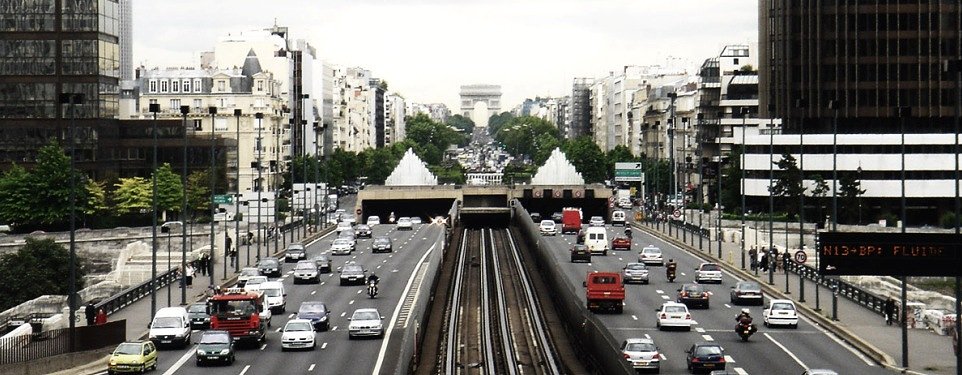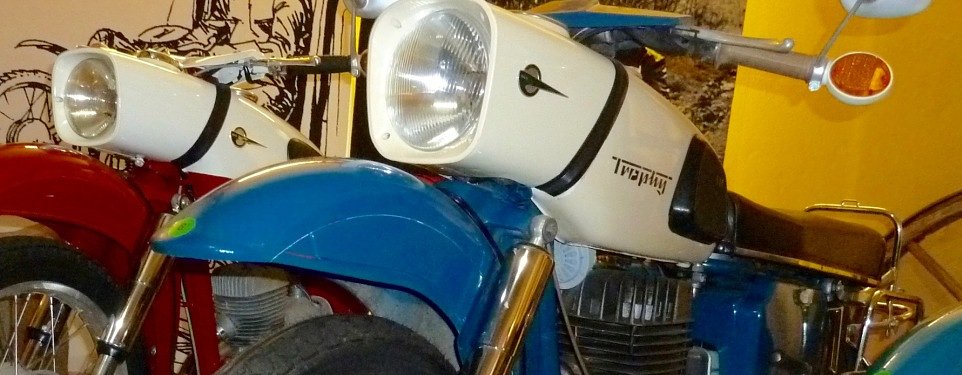As we reported last summer, Paris has banned the use of motorcycles (including mopeds and scooters) made before 2000. The purpose is to reduce air pollution in the French capital. The ban is in effect weekdays, from 8 a.m. to 8 p.m., which effectively means that French bikers cannot commute on older machines.
You can imagine that this legislation wasn’t popular with French motorcyclists. The French motorcyclists’ political organization, the FFMC, coordinated a number of well-attended protests last year, some of which drew thousands of motorcyclists to key thoroughfares, where they proceeded to ride at a walking speed, snarling traffic. In another protester, riders flooded into the subway system to argue that banning motorcycles would only strain other forms of transportation.
Those protests were to no avail. The rule was passed into law and Anne Hidalgo, the mayor of Paris, became the FFMC’s Enemy #1.
I lived in France in 2003 and 2004, so this was a familiar story to me. A government official imposed a strict new rule that discomfited a large group of mostly working class “mecs.” Those guys then organized and staged an angry protest. Politicians shrugged and went on their way. Another week in France; c’est la vie. But I was surprised when another round of Paris protests showed up in my Facebook feed this month.
Angry French bikers
FFMC stands for fédération française des motards en colère, which literally means, “French Federation of Angry Bikers.” Evidently, they’re still angry.
A couple of weeks ago, hundreds of bikers brought traffic to a stop along a snooty shopping boulevard in Paris’ Marais district. That confrontation brought them helmet-to-helmet with CRS (Compagnies Républicaines de Sécurité) riot police.
I’ve attended FFMC protests. When I lived in Lille, hundreds of bikers gathered to object to a new type of paint used in road markings (it was too slippery when wet). They’re remarkably well organized. They’d probably be derided here as “professional protesters.” This recent round of Paris protests included a big Sprinter-type van outfitted with loudspeakers, decorated with two huge posters by popular French cartoonist Stéphane Deteindre, whose comic strip “Joe Bar Team” appears in Moto magazine. Under the drawing was the slogan “les vielles se rebellent” — the oldsters are rebelling.
What is most striking about FFMC protests, from an American motorcyclist’s perspective, is that these gatherings bring all kinds of riders together. This latest video is typical. You’ll see sport bikes and cruisers, scooters and trail bikes, naked musclebikes, adventure bikes… pretty much the full gamut. Where would you ever find as diverse a group of machines and riders here in the United States? Harley riders barely deign to acknowledge metric cruisers. Sport bike riders don’t even notice scooter riders. It’s rare for a street rider to express much concern for issues like off-road access to public lands. Shit, Ducati riders don’t even like each other. I always admired (and envied) the FFMC’s ability to bring out every kind of rider, even if the issue they were protesting only affected a subset of motorcyclists.
How the French bikers got angry
The FFMC was created in 1980, but the forces that led to its creation date to the early 1970s. French motorcyclists faced skyrocketing costs during that decade. There was nothing they could do about OPEC oil prices, but at the same time French insurers began gouging motorcyclists. Riders were frustrated by insurance companies that based rates on engine displacement only. New road taxes and licensing fees were added costs, and the government made it harder and more expensive to get a license.
Meanwhile the existing Fédération française de motocyclisme was preoccupied with motorcycle sport. Ordinary motorcyclists felt they had no political clout. That changed in 1980, when members of numerous small motorcycle clubs — ranging from trail riders to patched gangs — coalesced into the FFMC. They were all kinds of riders who rode all kinds of bikes, but they had one thing in common: They were all pissed off.
One of the first things they did was organize resistance to a new rule that motorcycles over 750 cc had to display a tax stamp. They distributed stickers that bore an amazing resemblance to the stamp, as well as authentic-looking “125 cc” decals for big bikes, and “1000 cc” decals for small bikes, in an effort to confuse les flics. In spite of those efforts, a lot of FFMC members were ticketed for riding motorcycles without the sticker.
In the end, they succeeded in getting the government to withdraw that tax and they accomplished a lot of other good things: 40,000 members formed an insurance cooperative; they created a co-op to buy accessories and parts; they created an independent magazine; they encouraged the government to build more tracks and practice areas, arguing that there’d be fewer sport bike accidents if riders had a safe place to exercise their machines. When I lived in Lille, I was stunned to learn that the region had built a practice track which was available to almost anyone, almost any day. If you pay a 220-Euro annual fee, you can ride this track for 50 Euros per day.
This isn’t all the result of roadblocks and shouting into bullhorns. The FFMC does often have a seat at the table when French lawmakers are making rules that will affect bikers. Of course, as the Paris rule illustrates, they don’t always get their way.
I was struck, again, by the differences in the FFMC’s approach and the AMA’s—particularly in the renewed fuss over the possibility of an import tariff on small-displacement European motorcycles. The AMA’s approach is to encourage members to call or write their elected representatives or government officials. The FFMC approach would be to have 2,000 motorcycles of all types blocking access to the Congressional parking lot. I’m not sure which approach works more consistently, but I am sure that the FFMC’s ability to mobilize every kind of rider on every kind of bike makes it as effective as possible.
In France, they have a tendency to look across the Atlantic and think, “The American Revolution was the one that actually worked.” That feeling is even more pronounced among the French motorcyclists I know, many of whom are obsessed with Brando, rock ‘n’ roll, and the notion of America as a bastion of personal freedom. But in my experience the average Frenchman is far more willing to take to the barricades than the average American. Maybe it’s because the French feel they have unfinished revolutionary business.
What do you think? Is the American motorcycle subculture so fragmented it can never form a unified political front?







